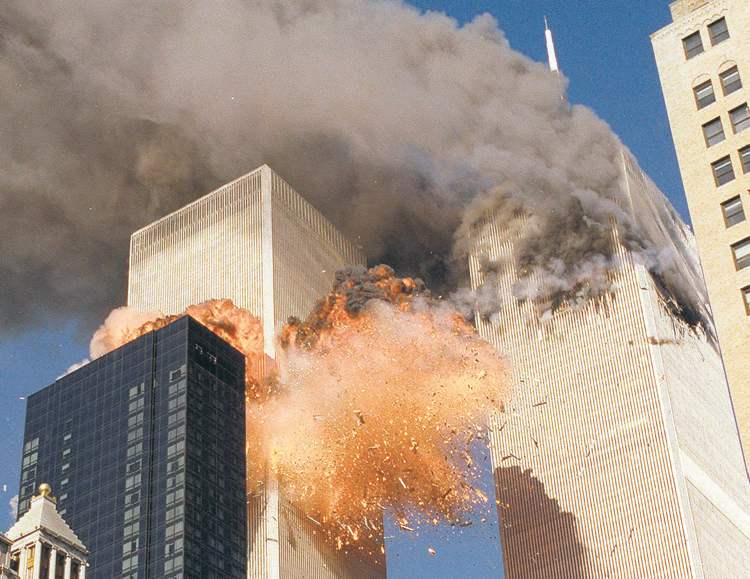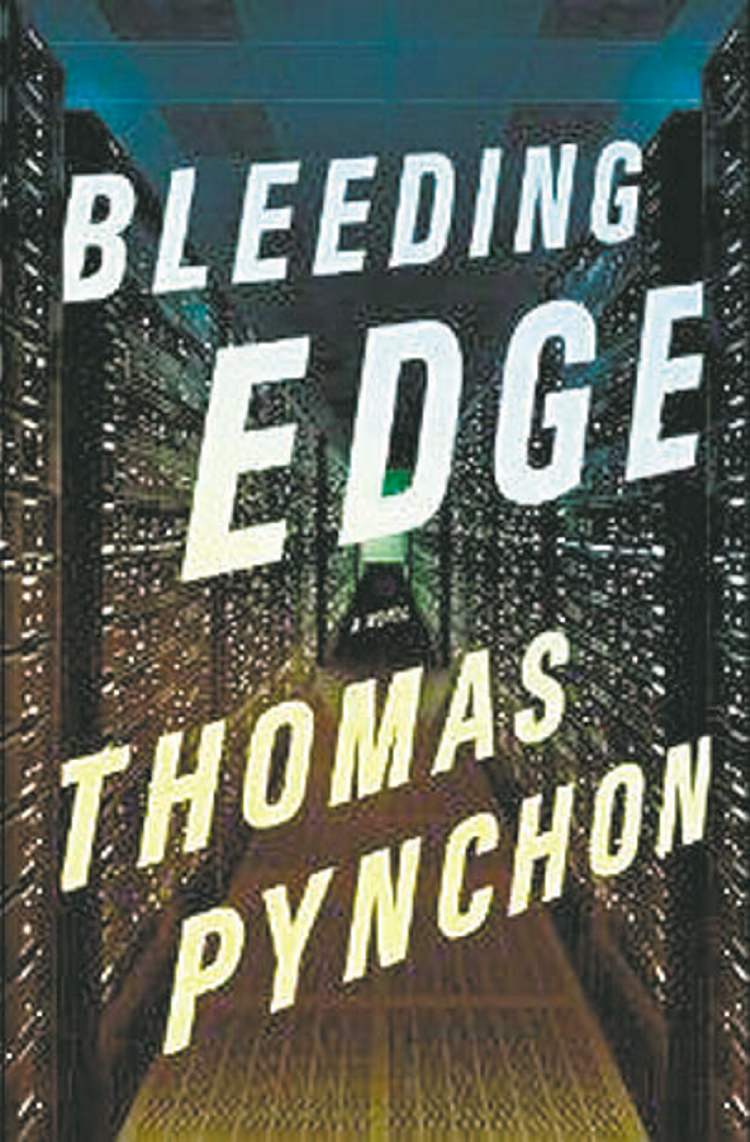All hell breaks loose
Pynchon back with jokes and jabs hung on 9/11 detective scaffold
Advertisement
Read this article for free:
or
Already have an account? Log in here »
To continue reading, please subscribe:
Monthly Digital Subscription
$0 for the first 4 weeks*
- Enjoy unlimited reading on winnipegfreepress.com
- Read the E-Edition, our digital replica newspaper
- Access News Break, our award-winning app
- Play interactive puzzles
*No charge for 4 weeks then price increases to the regular rate of $19.00 plus GST every four weeks. Offer available to new and qualified returning subscribers only. Cancel any time.
Monthly Digital Subscription
$4.75/week*
- Enjoy unlimited reading on winnipegfreepress.com
- Read the E-Edition, our digital replica newspaper
- Access News Break, our award-winning app
- Play interactive puzzles
*Billed as $19 plus GST every four weeks. Cancel any time.
To continue reading, please subscribe:
Add Free Press access to your Brandon Sun subscription for only an additional
$1 for the first 4 weeks*
*Your next subscription payment will increase by $1.00 and you will be charged $16.99 plus GST for four weeks. After four weeks, your payment will increase to $23.99 plus GST every four weeks.
Read unlimited articles for free today:
or
Already have an account? Log in here »
Hey there, time traveller!
This article was published 14/09/2013 (4488 days ago), so information in it may no longer be current.
The title of American literary giant Thomas Pynchon’s latest novel, being about the end times following the late-’90s dot-com bust, contains the least welcoming title the septuagenarian author has dared. And he has dared some uninviting ones in his long career.
Fortunately, the material between the covers of Bleeding Edge is much more appealing. It is sure to please his many, mostly male, fans.
And with much gratitude to the literary gods, it can be offered up that although Pynchon has reached his eighth decade before tackling (among many other things) the world of hacking and computers at the turn of the last century, due to his tech-savviness, he does not, unlike his even more ancient novel-writing compatriot Tom Wolfe, confuse uploading with downloading.

Nor does he have a character type a complete web address into the Google search box, as Wolf does in 2012’s unintentionally hilarious Back to Blood.
What Pynchon does do is create another detective-genre scaffold on which to hang and construct his various philosophies, opinions, jokes, jabs and riffs. The setting is New York City, of course, and the time frame is the years leading up to the burst of the dot-com bubble and the collapse of the Twin Towers and the fallout from that.
So, the calm before, or perhaps the eye, of the storm? In a plot that vaguely recalls Pynchon’s breakout first novel in 1966, The Crying of Lot 49, the heroine of Bleeding Edge, Maxine Tarnow, fraud investigator and owner-operator of the firm Tail Em and Nail Em, trails a high-tech CEO, among other stock good guys and bad guys, including her ex-hubby and the ubiquitous Russian mob.
Then all the usual Pynchonesque hell breaks loose.
Along his merry and unmerry, breezily readable way, Pynchon makes jokes. Some are good, like his set piece involving the members of the “American Borderline Personality Association,” who holiday on a beat-up cruise ship in the Caribbean while Madonna’s song Borderline blares from tinny speakers.
To be mean, these are times when one wishes for the more consistent wittiness of Pynchon’s closest imitator, the late David Foster Wallace.
Now, given that Bleeding Edge takes place mostly in 2001, Pynchon is forced to tackle a major real event that happened that year in New York.
Readers looking for a lengthy exposition on the events of 9/11 won’t find it here, and even 12 long years after the disorienting day, Pynchon’s take on the event comes off as a bit glib.
He focuses on the various conspiracy theories and paranoid fantasies in his usual comic style.

The novel, like Pynchon’s other genre-borrowing work, 2009’s Inherent Vice, is neither a genuine parody of a detective thriller nor a heady representation of the popular form.
In other words, those looking for a satisfying potboiler with a post-modern twist can find better literary experiments with the form, perhaps even Marisha Pessl’s ambitiously flawed new novel, Night Film.
Pynchon is arguably best known for his 1973 doorstopper, Gravity’s Rainbow, and it’s uncertain whether the passage of time has done much to improve his reputation as a major writer.
After one finishes this intelligent, mostly entertaining, occasionally funny and surprisingly straight-ahead novel, the idea that the reclusive author was once considered contender for a Nobel Prize for Literature seems a bracing reminder that we are a long way from the literary taste of the ’60s and ’70s.
Al Rae is a Winnipeg comedian.


